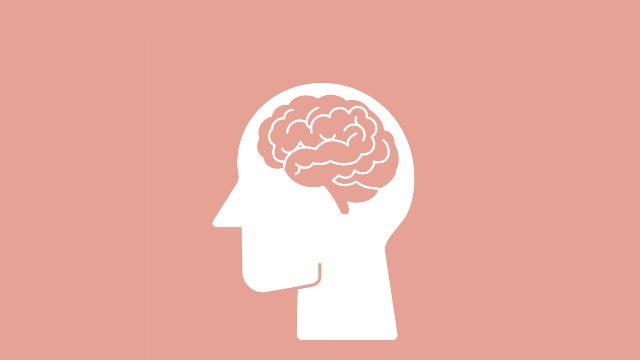Right, not everyone has the same intellect. It’s real. While others are more intelligently qualified, some have to do a little hard work to get decent qualifications. But don’t let your self-esteem go to you or decrease it.
Excel it and try new ways to study it’s you who can also get good grades, here are some Hacks to overcome your learning difficulties.
13). Chew gum.

The chewing gum act is also positive for the brain. Although your choice taste isn’t susceptible to harmful side effects (as caffeine may be used) it’s a perfect research aid. Why does this happen? Scientists don’t know precisely why chewing chicken allows you to concentrate, but they suspect it’s focused on eating us up and keeping us concentrating.
It doesn’t last, the only drawback. It can help to reserve the hack for the tougher sections of the content during shorter periods.
12). Control your focus.

The rule is normally clear – the higher the number, the better the outcomes. This rule extends to any mission. And little items will demonstrate the strength of focus. Playing a game, for example, takes attention.
You can play a game without concentrating, but he is losing a great deal. The same refers to analysis and review.
With high attention skills, a student can inevitably drive a less oriented student beyond those. Your brain’s practically a stronghold.
To pass tests the superpower needs to be manipulated as soon as possible. It’s the same brain for each pupil. Many that can help focus their brain are the best.
11). Study Online

The biggest benefit of asynchronous online learners is that they can be interested in high-quality learning circumstances where distance and timeline are impossible to learn on-the-ground.
In comparison, the online format provides greater flexibility to enroll in courses for visually disabled students. The online model allows the teacher to actively communicate with the teachers and educators.
In an online debate, each student addresses the courses and other student’s responses. A teacher can assemble online a reference section with links to journal journals, organizations, and other material related to this subject for students to view, expand, or deeply analyses information materials for study.
Through Google. Or, YouTube may have someone who discusses topics in lay terms that you research. Free tutorials such as Crash Course, Khan Academy, Bright storm, Bozeman Science are available on countless platforms, just to name a few.
You will find a lot of tools in a short quest!
Need Help? Ask Our Chat Assistant!
Read also: 5 Best Scholarships Program from Well Known Countries
10). Eat well

Right, you read it right-Yes you need to take care of you. We know that many students ought to be told to eat. We know that. Eat (and, potentially, delicious) balanced, tasty meals.
There is a certain illusion that the brain wants calories to work properly.
9). Make up your notes.
Add visual prompts and colors to your notes to help you recall important details, both of which can aid in your memory recall.
This idea stems from mind mapping concepts, which are thought diagrams, said to be much more effective in terms of learning than text-based notes. There are even mind mapping programs for those interested (but creativity, pens, and paper, work just fine, too!
8). Memory aids.

Learn to use multiple recall supports such as notecards, etc.
These supports are useful for storage strategies. You may find it useful to review the main things, information, or details you want to store periodically.
Mnemonic Devices.
For elementary and high schools, you’re presumably going to consider learning how to work using visual aids, (Please apologize My dear aunt Sally), the asteroids, the broad lakes, and so on (My Very Sincere Mother Serving Just Nine Pickles). It was something similar if you did not understand these exact differences.
The point is, you can’t make your own to better recall the content for your advanced chemical research. By making your plot you can quickly recall main terms, patterns, and everything else you need to understand. Get up with and continue with everything you know you should recall. In reality, it is going to benefit!
Organize your materials.
This allows you to categorize the material by topic or chapter while seeing the aspects which go together.
Believe it or not, it makes you appreciate the nature and categorization of subjects that you study and you can see how it blends.
7). Rewrite your notes by hand.

Go back old school time when you take the notes manually and rewrite them to memorize it.
Studies suggest you can learn more easily when you take the time to edit them by hand than with your phone, tablet, or laptop.
6). Listen to music.

Choosing the right form of music to hear during your research will increase your productivity, inspiration, and concentration. Some type of music – known as “thinking music” – was currently recommended for research. Research music can increase attention, concentrate, and allow you to work longer hours. It can never be disruptive or distractive – regardless of the genre, you pick.
5). Sleep

Again, sadly, it is a core social need that needs to be mentioned. Get a lot of rest after your analysis (and before your exam or questionnaire).
To think right, the body needs to sleep.
One of the most important ways to increase your performance is by successful rest night and it will help improve your critical thought. Your cognitive capacity is impaired by sleep, hence the test skills. Suffice to say!
4). Start Studying Early

Instead of your normal grab, start training early. No one just gets packed because it’s a smart idea – because of bad preparation they do so. Set the course in time so that you are not stuck in a practice session and then have to miss sleep (and, potentially, do not feed correctly).
Under preparation continues to trigger the domino effect-due to time constraints, ease, need, etc. other bad behaviors continue to follow. Now, as you remember, it’s like the plague to stop.
3). Switch settings.
Adjust the environment of your study is important. Studies suggest that you no longer benefit from a devoted field of research.
Avoiding a typical room is advantageous when the mind blends the environment with the content in an unconscious way. This means that if you always take the test in the same room, it would be better.
When you adjust your room, your mind integrates all the places in which you learn and adapts better to your test environment.
Read also: Top 10 Affordable Universities For Best Education Around The world
2). Teach.

Teach the information that you are trying to understand about someone else. Teaching another person is such an easy way for you to learn the subject better and collect karma points to help a classmate who needs a little extra support! Teaching is the first way to see if you know the definitions (before the final test).
Why do you learn through teaching? You know that you ought to return to the first place if you teach the subject to someone and find that you cannot answer simple questions about it. It’s a convenient way to figure out if the definitions are simple.
1). Turn on the lights.

Light can help your mind concentrate, impact visual focus, psychological factors, and deceptive lighting can contribute to the action of your mission.
Soft and realistic, but as vivid as possible so you can easily see, is the best kind of illumination for optimum efficiency (what you probably want to learn. It reduces concentration and visual perception if the lighting is too dark.
Too bright lighting (such as fluorescent light) will help get rid of the job.
This gives you 15 hacks and tricks to help you properly handle your time, improve focus and memory, and increase classroom performance. Try to use your time to the limit and not to club the whole study right before the test to make the studies a lot smoother.


